This is a story of how I grew up paying attention to the mouthfeel of tea, lost it, and am getting it back. This post also explains mouthfeel.
Early Experiences with Milky Teas and Mouthfeel
Until I went to college, probably 99% of the tea I drank was Lipton black tea with milk. Back then, I could tell by the color of the tea or the way it felt in my mouth whether it had the ratio of milk to water that I liked. I was always a fan of thicker mouthfeel for tea with milk (as long as the tea was strong enough).

To this day, if I am making a tea latte, my love of texture usually nudges me to take the time to froth milk. I just love that frothy, thick mouthfeel.
Thus, it’s puzzling that once I transitioned to drinking loose-leaf tea without milk, it was years before I started to (re)consider mouthfeel beyond astringency. My guess is that I need lots of experience with milk-less teas to start to appreciate the differences in mouthfeel besides astringency (or dryness/pucker).
First Noticing Mouthfeel of Tea without Milk
I actually remember the first time I ever really deeply considered the mouthfeel of a tea without milk. It was at Tea Drunk, years ago, when they still had a physical tearoom in the East Village of New York City. I was tasting my first Gua Pian, a Chinese green tea on the list of “Chinese Famous Teas.”
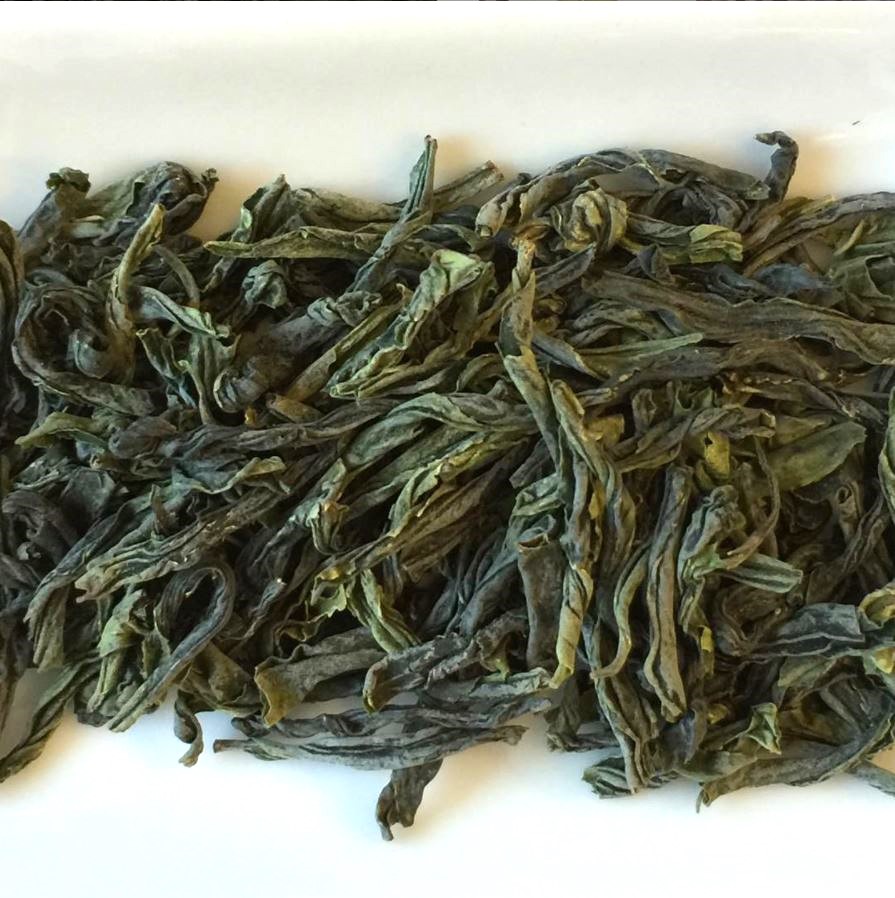
Shunan, the owner, was guiding me and my husband through preparing and tasting the tea. She directed our attention to the “sugar water” mouthfeel (not taste, but how it felt in the mouth). I knew exactly what she meant as soon as she said it. And, a seed was planted.
I’m still not as keyed into mouthfeel for milk-less teas as I would like. I steeped some teas recently; however, that made me want pay more attention to mouthfeel. Before I share those teas, let’s clarify what mouthfeel means.
What is Mouthfeel?
I like this explanation from Lindsay Goodwin, writing for The Spruce Eats:
“Mouthfeel is the physical sensation a food or drink creates in the mouth, including the tongue and the roof of the mouth. It is different from taste or flavor, though some mouthfeel terms overlap with flavor or aftertaste.”
I also found the “What is Mouthfeel” article by Angelina Kurganska on the Path of Cha’s website very helpful.
The mouthfeel of a tea can also be referred to as its “body.”
Two Teas that Stood Out for Mouthfeel
The recent teas that got me revisiting mouthfeel were Indian Cloud from Rare Tea Company and Tipsy Garden, Barrel #2 by Volition Tea. A friend kindly shared the first tea with me. The second I bought after I tasted it with some friends one evening after the Toronto Tea Festival.
It wasn’t a “sugar-water” feel that got me focused on texture this time. It was the way the tea coated my mouth. Not a buttery feeling as I have experienced before with some teas, but a thicker, oily feeling. I hate the word “oily” to describe this thick-coating feeling. It doesn’t sound pleasant, although the experience absolutely is (to me).
The Indian Cloud–a black tea–tea gave me that thick coating. It was more noticeable on some steeps than others, and I’m not sure why. It was ever-so-slightly sticky. Since I loved the flavor of the tea, and the coating felt good and seemed to help the flavor stick around, I found it very pleasant.
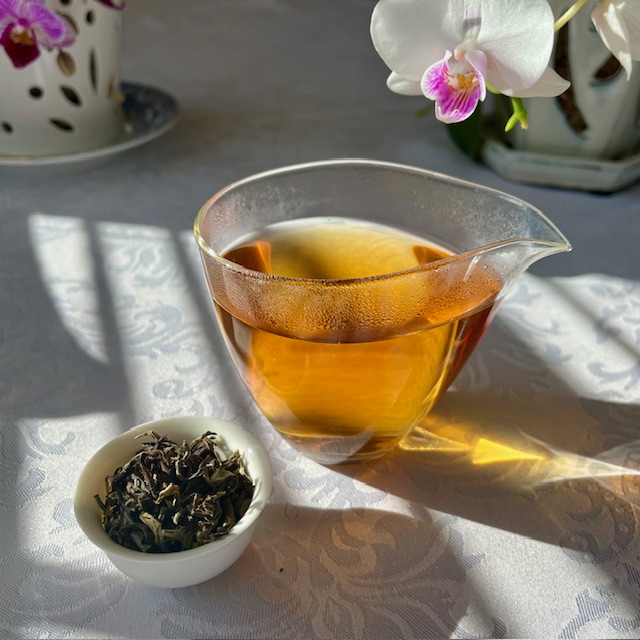
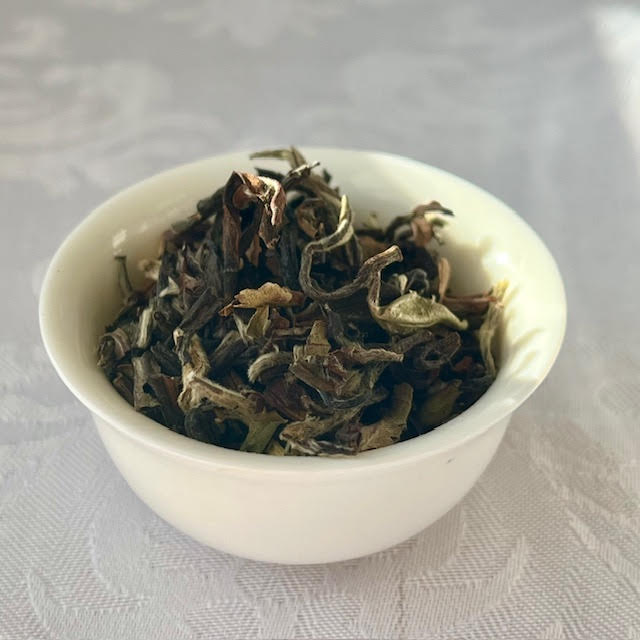
Tipsy Garden is a white tea aged in a gin barrel. By contrast to Indian Cloud, Tipsy Garden has a slick and silky mouthfeel. In fact, I was puzzling over what people might mean by silky mouthfeel a few days before trying this tea (for the first time at home). When sipping this tea, it struck me. This light, slippery, and luscious coating epitomizes silkiness to me.
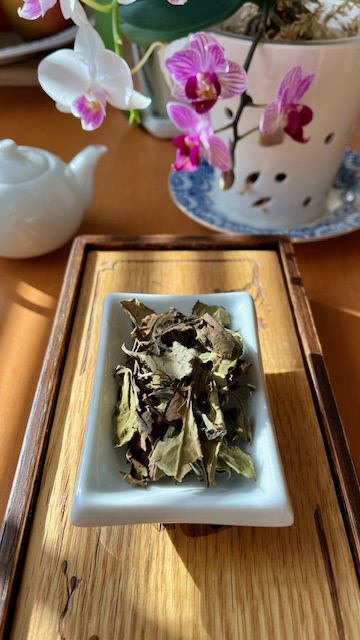
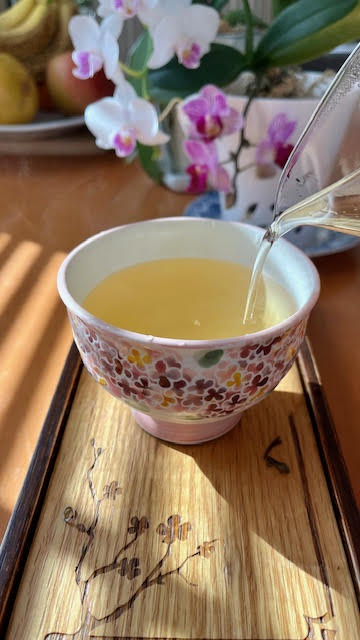
You can read my tasting notes for this glorious tea on my Instagram reel about it.
Concluding Thoughts
In Western tea drinking, we tend to focus on the taste of the tea. But, there is so much more to tea. Mouthfeel is one of the other ways we can notice and enjoy what tea so generously gives us.
What teas do you find particularly delightful in terms of mouthfeel, and why? I’d love to know.

2 replies on “Mouthfeel of Tea”
I’ve always wanted to be more intune with this aspect of my tea experience. Thanks for sharing your experience with these. I’d like to give this some time and attention!
I hear that, La’Shell! I hope we can both get more in tune with that aspect of tea experience. Thanks for reading and commenting.